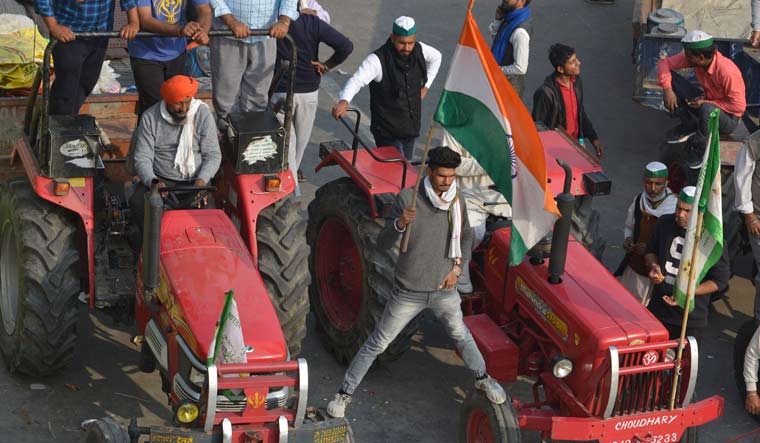A meeting was held in Vigyan Bhawan in Delhi on Tuesday between the representatives of 35 farmers’ organisations and ministers representing the Central government. Despite several hours of talks, the negotiations were inconclusive, and the next talks have been fixed for Thursday.
The agitating farmers are demanding repeal of the three recent laws relating to farmers, but the government seems unwilling to agree, resulting in an impasse.
I submit that a reasonable ‘via media’ can be that both parties agree that the laws remain on the statute book, but will not be enforced till the parties, after wide negotiations, agree to some compromise formula.
For this purpose, the government can issue an ordinance amending the three laws and stating that they will come into effect only when they are notified in the official gazette. Ordinarily, a law comes into effect as soon as the bill, which has been passed by both Houses of Parliament, receives the assent of the president (or the governor, in case of a state bill). But some laws specifically state that they will come into effect only when notified in the official gazette, or on the happening of some other contingency. These latter are known as conditional legislations.
So the suggestion I am making is that the Central government should, by an ordinance, convert the three farm laws into conditional legislation. This will be face-saving for the government, as well as for the farmers, and both can claim partial success. The government can claim that it has not repealed the laws, while the farmers can claim that the laws are not being enforced. The alternative is violence, which seems inevitable if the present confrontation continues.
The government must realise that if it does not partially relent and agree to this suggestion, it will lose a large number of farmers’ votes in future elections (farmers are 60-65 per cent of India's population).
On the other hand, farmers must not insist on a measure (i.e., repeal of the three laws), which will be a total loss of face for the government. In negotiations, both sides need to bend a bit, and not be too rigid and intransigent, if there is to be a successful outcome.
The farmers must realise that there is a principle of administration that the government must not surrender before pressure, because if it does, it will create an impression that it is weak, and then more demands and pressures will come. Presently, the farmers are blocking many roads leading into Delhi, and some are calling for total blockade of Delhi.
also read
- OPINION: Can the Supreme Court appoint a Chief Election Commissioner?
- OPINION: All caste-based reservations should be abolished
- No end in sight to woes of dads whose kids were abducted by moms: Justice Katju
- OPINION: Ignorance of south India is matter of shame for north Indians
- OPINION: Nuns are role models and Indians should learn from them
If in this situation, the government agrees to repeal the three laws, it will be surrender to pressure. No government can agree to this, and if this imbroglio continues, I fear there may be violence, as it happened on Bloody Sunday in St Petersburg in January 1905 when the Czarist troops fired on a mob led by Father Gapon (who was later revealed to be a police agent), or in Paris during Vendemiarie in October 1795, when the mob was dispersed by a 'whiff of grapeshot' by Napoleon's cannons.
Hence I am suggesting a via media, which will avoid violence, and by which both sides can claim partial success.
Justice Markandey Katju retired from the Supreme Court in 2011
The opinions expressed in this article are those of the author's and do not purport to reflect the opinions or views of THE WEEK







